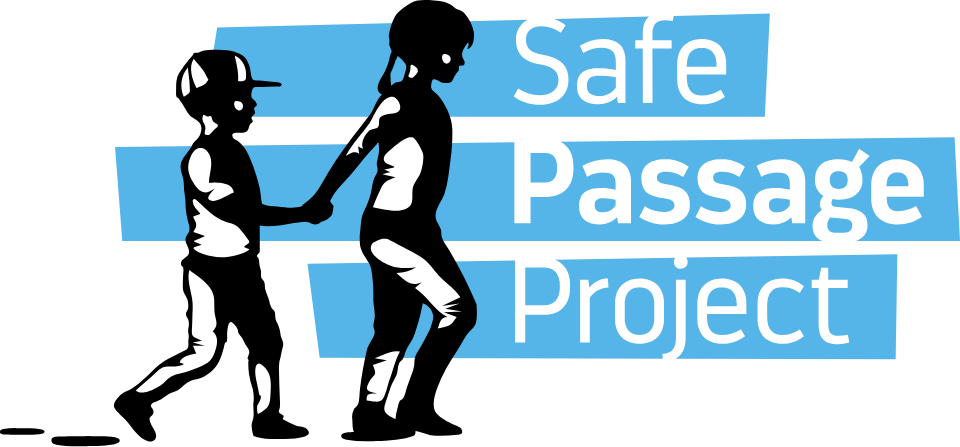The New York Times has recently reported that ICE raids on thousands of undocumented families were scheduled to begin Sunday, July 14 across 10+ major cities in the United States. Most Safe Passage Project clients are not in a legal posture that would result in ICE targeting them, and Safe Passage Project is cognizant that the intended cruel goal behind these raids is in part simply to spread fear and panic among our vulnerable immigrant communities. We do not want to add to this fear by mass-messaging our clients or their families with warnings about these raids, which appear to be focused on recent arrivals with in absentia removal orders, and we don’t recommend that you do, either. Still, we understand that many of our clients and their families may be rightfully concerned, and may turn to you for guidance. Knowledge is power, and now more than ever it is important that our clients and their loved ones know their rights. We are sharing the information below in case your clients contact you with questions.
Who may be impacted by the raids?
The raids are expected to primarily target individuals with outstanding in absentia removal orders (most likely issued after they failed to appear for a removal hearing). In particular, recent arrivals to the United States are at an increased risk of being targeted. If you are aware that your client has an outstanding removal order, please contact your mentor attorney.
The large majority of Safe Passage Project clients do not have outstanding in absentia removal orders, which is why we do not expect they will be personally targeted in the raids. However, many of our clients reside in communities with large immigrant populations, meaning that they may have guardians, family, friends and/or neighbors who will be targeted. Additionally, the raids are expected to include “collateral” arrests of immigrants who are not the intended targets, but who happen to be on the scene at the time of the raids. As such, it is important for our clients to be vigilant, and to ensure that everyone in the household and the community knows their rights when approached by ICE.
What are an immigrant’s rights when approached by ICE?
As it pertains to home raids, here are 4 important (but non-exhaustive!) points for your clients to remember:
1. ICE cannot enter a home without a warrant signed by a judge. ICE agents may try to show other documents (i.e. “ICE warrants”) that are not judicial warrants, in an attempt to get inside. If ICE agents are asking to enter the home, request that they show their warrant by sliding it under the door, and then text an image of it to your attorney. You do not have to open the door for ICE agents.
2. Politely tell ICE “I don’t want to talk to you right now.” It is important to remain calm, be polite and not lie. If ICE is looking for someone else, ask them to leave contact information. You do not have to tell them where that person is.
3. If ICE enters without your permission or without a proper warrant, politely tell them “I do not consent to you being here right now.” Repeat this while they remain in your home.
4. If you are arrested by ICE, you have the right to remain silent and speak to a lawyer. You do not have to share any information with them, and you should not give them your consular documents or passport (they may use these to help the government deport you).
Other Useful Resources
The New York State Office for New Americans has a hotline to connect immigrants to legal resources that they will be staffing this weekend: 1-800-566-7636.
The Immigrant Defense Project (IDP) operates an ICE Raid hotline at (212) 725-6422. It should be noted that calls to this hotline go through to an automated answering machine, where immigrant friends/family members are asked to leave a message detailing information about their loved one who has been arrested, and to leave a call-back number. IDP staff then follows up to assist in connecting the family with legal representation resources for their detained loved one, and to document the details of the raid.
IDP also provides insightful and easy-to-read booklets, posters and tutorials for key rights to know during ICE home and community arrests, available in various languages.
The ACLU provides a summary of common scenarios between immigrants and ICE, including important rights to know and how your clients can assert them. Available in English and Spanish.
We Have Rights provides a series of “Know Your Rights” videos in various languages.
In addition to “Know Your Rights” tutorials pertaining to in-home raids, the above resources also contain valuable information for immigrant encounters with ICE and the police in other contexts (on the street, during and after arrest, etc.).
What if my client has a loved one who is already in ICE detention?
The New York Immigrant Family Unity Project (NYIFUP) is a city-funded program that provides free immigration legal representation to all immigrants who have been detained by ICE and have their immigration court hearings in New York City. The three organizations that administer NYIFUP are the Bronx Defenders, Brooklyn Defender Services, and the Legal Aid Society (New York City Office). Individuals should only contact these organizations for free legal services if they have a loved one who is already in ICE detention or is expecting imminent transfer to ICE detention.
– Brooklyn Defender Service: (718) 254-0700, Ext. 252
– Legal Aid Society: (844) 955-3425
– Bronx Defenders: (718) 838-7878
Questions?
If your client contacts you with concerns, please feel free to send this information along and to discuss it with them. If you have any questions about the content of this update, please contact your mentor attorney or Alexandra Rizio, Managing Attorney for Training and Partnerships, at arizio@safepassageproject.org / (212) 324-6558.
